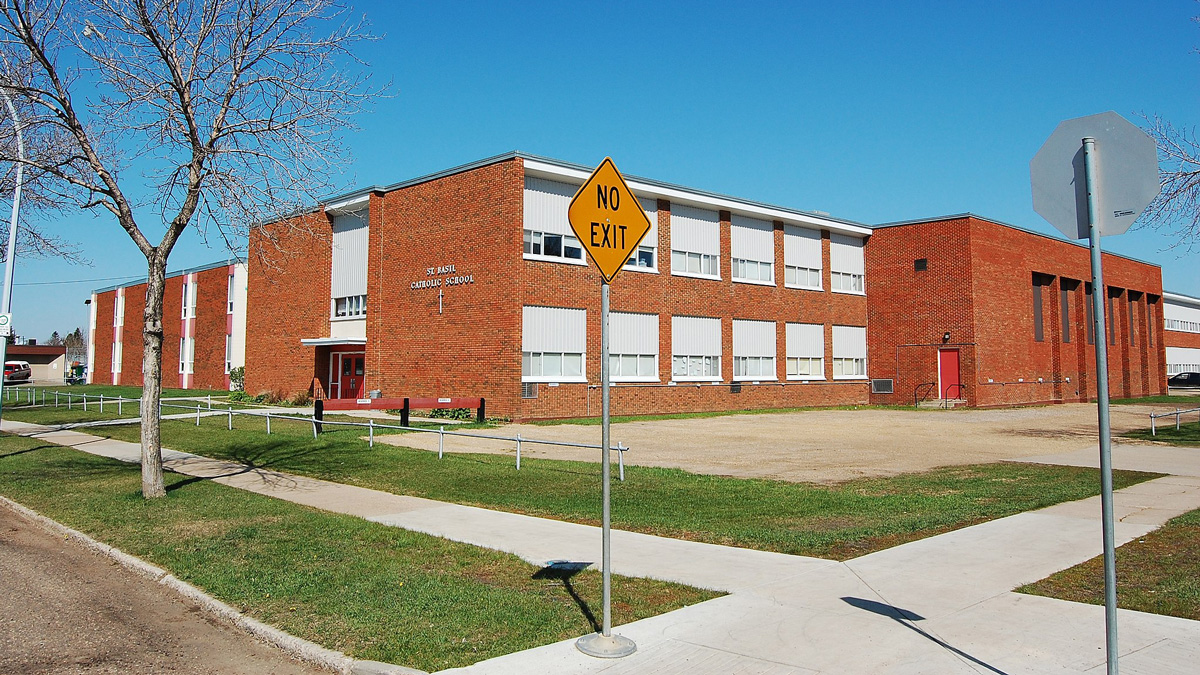 Joshua Storie
Joshua StorieEach year, The Gateway publishes an evaluation of the Students’ Union executive and the Board of Governors representative. It is impossible to discuss every aspect of their tenures, so these reports are largely based on the major components of the platform each executive campaigned on, and the most significant responsibilities of their respective positions. These evaluations were informed both by interviews with the executives themselves, as well as a survey of student councillors. The grading rubric can be found below. And if you’re short for time, check out our TLDR for a bite-sized breakdown.
Marina Banister: B-
The role of the president is to be a figurehead, in many different ways. Their job is to bring together the executive, represent undergraduate students of all kinds, and work towards building a community on campus. Banister is an expert at this on paper, with many years of governance experience. But Banister falls somewhat short in regards to some critical issues.
Progress on the Student Charter of Rights, a cornerstone of Banister’s platform, has been somewhat halted due to a need for more in-depth research on what kind of rights can be reflected in such a document, as well as an investigation of similar documents that exist at other universities. Banister deserves credit for being willing to start an initiative that will take several years to complete, and it is important for a president to look beyond their own legacy to the long-term goals that can be achieved for students. That being said, Banister only gets so much credit for centring her platform on a project that will depend entirely on the buy-in of her successors, which isn’t guaranteed. The interim solution of a landing page connecting students to documents enshrining their rights that currently exist is progress, but many of those documents are still lacking in their protection of students, and a concerted effort to publicize the rights students currently have does not seem to be part of the plan.
One of the main focuses of Banister’s presidency has been STRIDE (not an acronym), an initiative designed to educate and encourage women and gender minorities to participate in student governance. Stride has received positive feedback from participants, but the program currently only serves so many people. Banister gets credit for the value provided to those participants, although it is yet to be seen whether Stride has been successful in encouraging marginalized populations to participate. There are many broader systemic issues in student politics that will always limit certain people’s eligibility — including things as simple as the fact that you need lots of friends and connections to run a successful campaign. Stride may be an important step in the right direction, but Banister fell short of providing widespread, meaningful change for marginalized groups on campus this year.
An important example of Bannister’s shortfall for providing widespread, meaningful change is the controversy surrounding Bill 5. The details of the bill enter into the territory of SU jargon and council bureaucracy, but regardless of your stance on the bill itself, Banister’s support of it has contributed to a significant loss of trust amongst Indigenous students on campus. Banister spoke often about improving campus efforts towards reconciliation, and supporting initiatives like mandatory Native Studies course content, but has failed to bridge some of the most crucial divides between Indigenous students and university institutions. Proper representation and rights to self-governance are crucial to any reconciliation effort, and using Indigenous students as a platform point without making any real investment in their wellbeing is not commendable behaviour in a president.
TLDR: In order to fulfill her mandate of representing all students, Banister needed to do more to advocate for a broader group of undergraduates. Banister has made progress on a Student Charter of Rights and has provided value for some people through Stride, but her inability to represent the interests of Indigenous students indicates a platform promise that has fallen short.
Rubric:
A-range: This person has fulfilled the promises they campaigned on, has created tangible change during their tenure, and has shown a commitment to improving the lives of students. Their GPA is looking good.
B-range: This person has done their job consistently well, but has not made any remarkable changes, or has fallen short on important goals they set out in their platforms. They’re doing fine, but it’s nothing to phone home about.
C-range: This person has done their job sufficiently, but has failed to make significant progress in the areas most relevant to their portfolio, or has essentially abandoned a major part of their platform. They’re still passing with a safe buffer though, and Cs get degrees!
D-range: This person has done a very lacklustre job, and has not sufficiently fulfilled their campaign promises or the responsibilities of their position.
F-range: This person has not done their job, has not represented students, and has not fulfilled their campaign promises whatsoever.




